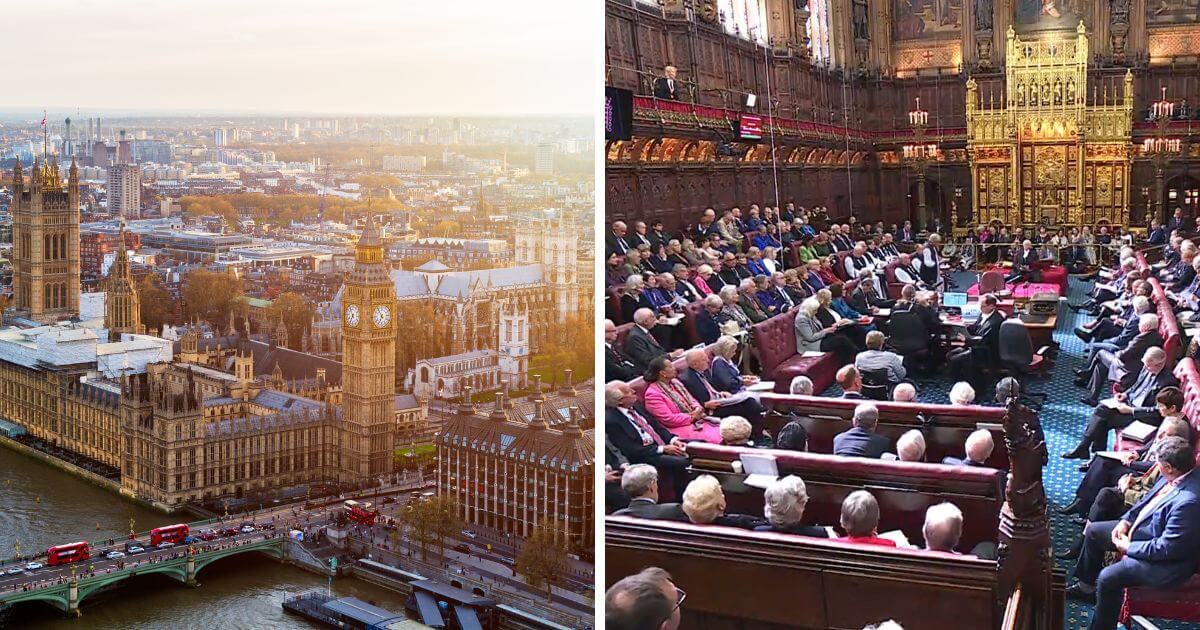In a significant win for opponents of the assisted suicide Bill, following the second day of Second Reading of the Bill in the House of Lords, Peers have approved the establishment of a dedicated select committee to further scrutinise the Bill’s proposals, with the commencement of the Bill’s formal Committee Stage being delayed until the select committee has reported.
Last week, Baroness Berger tabled an amendment that delayed the commencement of the Bill’s Committee Stage until a select committee had reported. This was branded by supporters of the Bill as a “wrecking amendment” and dismissed by Lord Falconer as not “workable”.
However, on Wednesday of this week, in a significant U-turn, Lord Falconer made a major concession, agreeing that he would now back a new amendment tabled by Baroness Berger that would, in fact, still delay the commencement of the Bill’s Committee Stage until a select committee had reported.
This has been called a “significant win” for opponents of the Bill by Politico Playbook. Commentators have said this clearly showed that Falconer and supporters did not have the numbers to vote down the amendment, and so conceded.
Two-thirds speak in opposition
This followed another strong majority of Peers speaking against the Bill on day two of Second Reading.
An analysis of the speeches across both days one and two of Second Reading, completed by Right To Life UK’s Policy Team, found that of the 155 peers who took a position on the Bill, 104 (67%) spoke in opposition and 51 (33%) spoke in favour. This represents more than double the number of Peers speaking in opposition to the Bill compared to those who supported it. A further five Peers did not take a position.
Today, of the 69 peers who took a position on the Bill in their speeches, 45 (65%) spoke in opposition to the Bill and 24 (35%) spoke in favour. A further two Peers did not take a position.
This is the opposite of Second Reading in the House of Commons, where a majority of MPs spoke in favour of the Bill (25 spoke in favour, 21 spoke in opposition). This indicates that the House of Lords is likely to be significantly more opposed than supportive of the Bill, and given that the House of Lords can reject the Bill, the Bill is increasingly looking like it will never become law.
Embarrassing moment for Lord Falconer
In an embarrassing moment for Lord Falconer, he had to apologise for failing to mention, as he ought, that the pressure group Dignity in Dying funded the printing of literature he sent to Peers. This appears to be a pattern, as Kim Leadbeater also had to apologise at Second Reading in the Commons.
Lord Alton unable to attend after London bus crash
One high-profile member of the House of Lords who was not present today was Lord Alton of Liverpool. Lord Alton was recently involved in the London bus crash in Victoria, where he suffered spinal injuries, so was not able to speak in the debate. In place of being able to give a speech, he recorded a video of the speech he would have given at Second Reading, which has been posted here (full transcript here).
Following the debate, former First Minister of Northern Ireland, Baroness Foster, said “The two days of debate at Second Reading have shown just how strongly this Bill is opposed across the House. Peer after peer spoke about the dangers it poses and the harm it would inflict on the most vulnerable”.
“Given this widespread opposition, it will be an uphill struggle for those backing the Bill to get it through a dedicated select committee and then all its remaining stages before the end of the Parliamentary session”.
Leading opponent of the assisted suicide Bill in the House of Lords and former Paralympian, Baroness Grey-Thompson, said “Across the two days of Second Reading, many more Peers have spoken against the Bill than in favour, with dozens voicing concerns about the risks it poses to the most disadvantaged in our communities and the lack of proper safeguards”.
“This Bill is not a Government Bill and was not part of a manifesto promise, so the Lords is constitutionally entitled to reject this Bill. The message from the two days of Second Reading is unequivocal: we must protect the most disadvantaged in society”.
Second Reading debate highlights
In a significant contribution, relating her experience as an MP, Baroness Berger warned peers that, sadly, there are people who want family members to die or who feel they are a burden. She said she had not forgotten the experiences of former constituents who she described as “isolated and abused”, “in fear for their own lives, people who felt like a burden”. This could be extremely dangerous in the context of assisted suicide.
Former Deputy Prime Minister Baroness Coffey pointed out that there is “no reference to pain and suffering in this Bill” and “support from GPs has fallen” for assisted suicide.
Baroness Parminter, who spoke of her daughter having an eating disorder in the past in her speech, outlined a grave problem with the Bill as it stands: it currently places people with eating disorders at risk.
Former Head of the BMA, Baroness Finlay, shattered myths advanced in support of the assisted suicide Bill, declaring “This Bill… does not improve patient choice or control”.
Former Northern Ireland First Minister Baroness Foster spoke powerfully for the vulnerable and explained how the Bill would undermine rather than promote autonomy because people who feel a burden would opt to die against their will.
In a philosophical critique of the assisted suicide Bill, Lord Frost exposed how legalising assisted suicide would shatter our entire ethical framework. “The ultimate destination” is “utilitarianism” he said, and “none of us” would be safe.
Baroness Fox warned compellingly that if assisted suicide is legalised, the law would inevitably expand. She told Peers they have a “weighty responsibility” to ensure these “nightmarish” consequences “don’t become a reality”.
Former Education Secretary Lord (John) Patten slammed “the strange and weird” way that Kim Leadbeater’s Bill has proceeded through Parliament and the Government’s “covert” and “overt” help for a Bill about which it has claimed to be neutral.
Lord Mackinlay argued that far more people would die under the assisted suicide Bill than Lord Falconer claims and said we risk a slippery slope as has happened elsewhere.
Further highlight video segments are available on our X account here.
House of Lords within its constitutional remit to block the Bill
Since the Bill is not a Government Bill and was not part of a manifesto promise, the Lords are constitutionally entitled to block or heavily amend the Bill.
In a piece for The Spectator, Former No.10 Director of Legislative Affairs, Nikki da Costa, explained that the House of Lords is under no duty to pass a Private Members’ Bill such as the assisted suicide Bill, particularly as it was not part of the Government’s manifesto.
Constitutional scholar Professor Mark Elliott also explained that for bills of this kind, the Lords can lawfully withhold consent or use the “ping-pong” process to prevent agreement between the Houses, meaning the Bill would fail.
Further commentary in The Spectator stresses that blocking a controversial Private Members’ Bill is well within the Lords’ remit, given their constitutional role as a revising chamber.
Sky Deputy Political Editor Sam Coates noted that even a senior Government figure who supports the Bill admitted that “the chances of it passing are worse than 50/50″.
Spokesperson for Right To Life UK, Catherine Robinson, said “The establishment of a dedicated select committee to further scrutinise the Bill’s proposals is a big win for opponents of the assisted suicide Bill. It’s clear that Falconer and his supporters knew they did not have the numbers to vote down the amendment, and so conceded”.
“The large majority of peers speaking in opposition to the Bill across the two days of Second Reading suggests the House of Lords is currently significantly more opposed than supportive of the Bill. Given that the House of Lords can reject the Bill, the Bill is increasingly looking like it is in jeopardy and will never become law”.
“With Hospice UK warning that 40% of hospices are planning to make cuts this year, the NHS described by our Health Secretary, Wes Streeting, as ‘broken’, and every year, 100,000 people are still dying without the palliative care they need, this assisted suicide legislation is a disaster waiting to happen”.
“Vulnerable people in our society need our unwavering protection and the best quality care, not a pathway to assisted suicide. Evidence from abroad shows that, if this legislation becomes law, large numbers of vulnerable people nearing the end of life would be pressured or coerced into ending their lives”.












